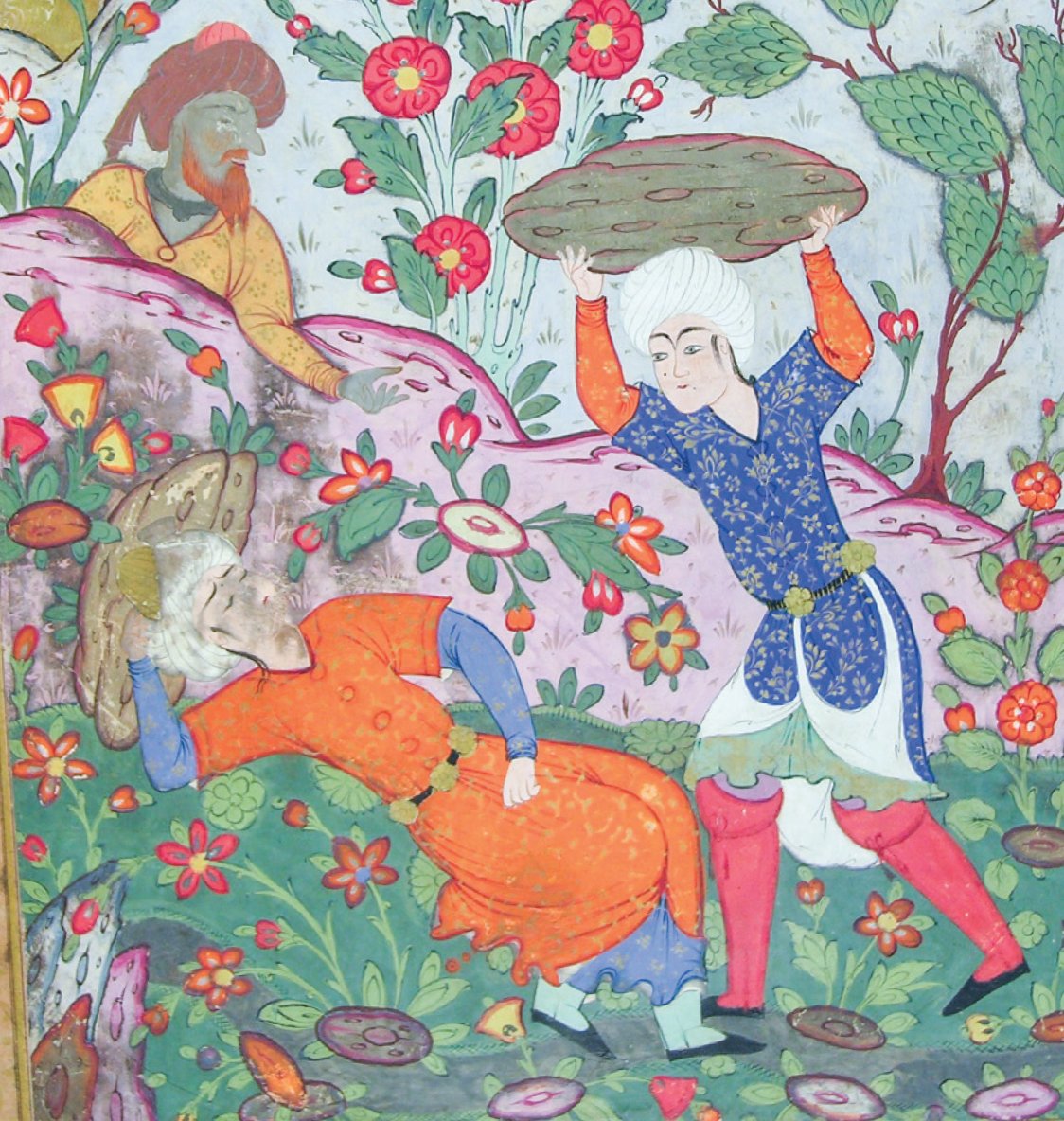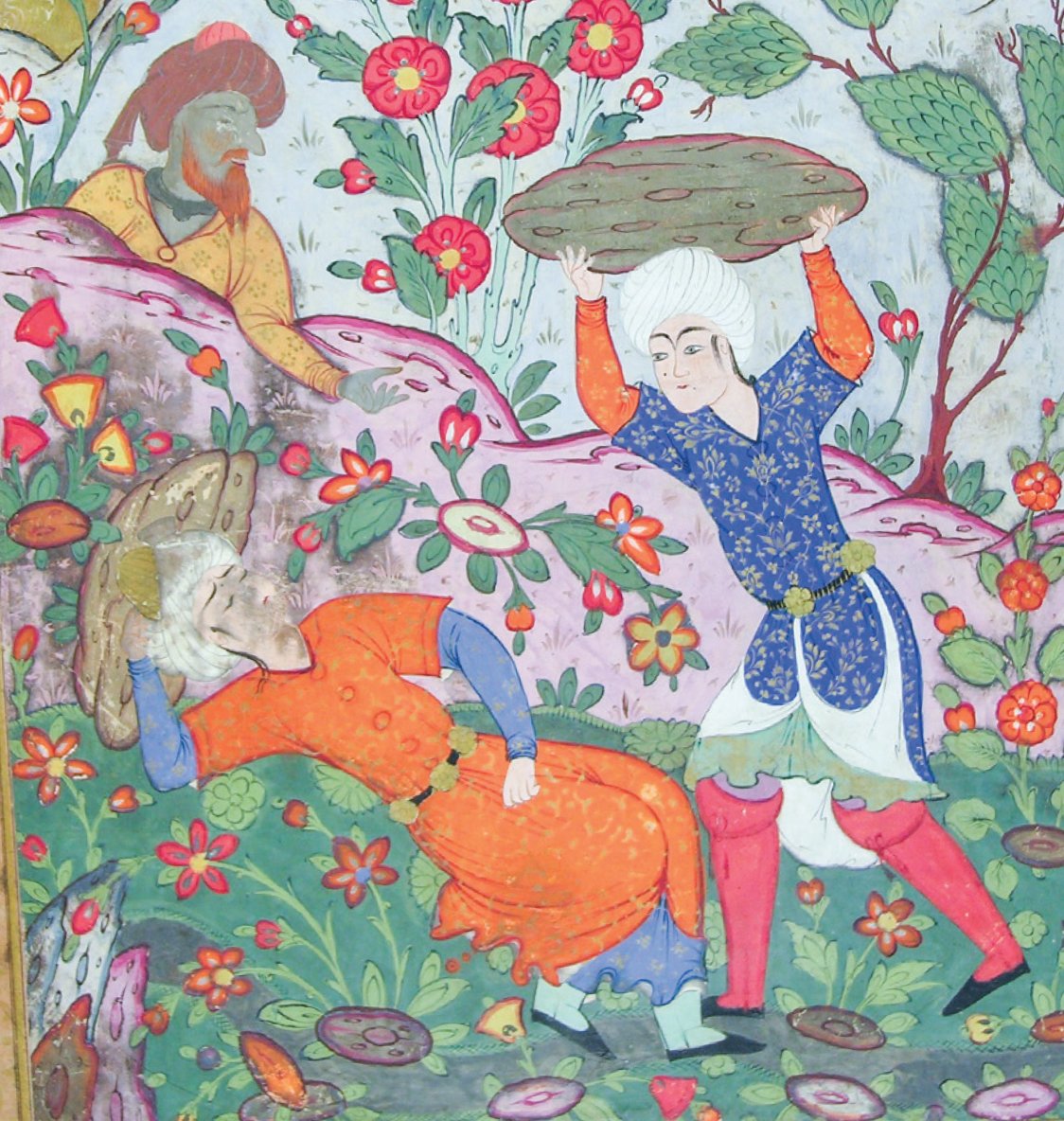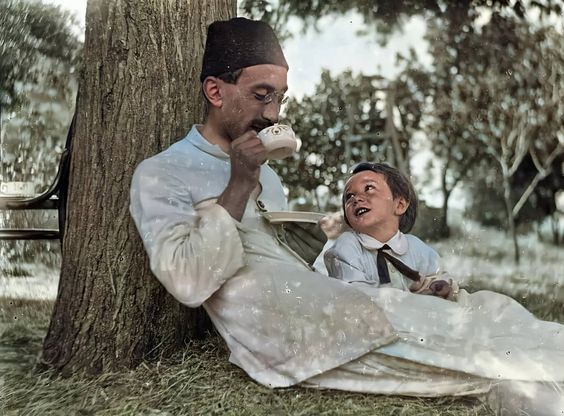
FATHERS AND SONS IN THE QURAN
The relationship between father and son has always been notable. Whether they like it or not, a child represents their father to some extent from the moment they are born until they die. The Quran, which forms the foundation of Turkish-Islamic culture, contains many instructive stories about fathers and sons.
1. Adam and Cain
The first person to commit murder and the first person to be killed was the son of Prophet Adam/Adem (peace be upon him). Cain (Qabil) killed his brother Abel (Habil) out of simple jealousy. The first human and prophet was tested with this.

2. Noah and Canaan
When it was foretold that the whole world would be flooded, Prophet Noah/Nuh (peace be upon him) built an ark. He took his family and a pair of every animal. Three of his sons obeyed. One son, Canaan (Kan’an), said, "I will go up the mountain, nothing will happen to me." A wave came and swept him away. There is a poignant dialogue here. When Prophet Noah asked, "My Lord, weren't my family supposed to be saved?" Allah replied, "He is not of your family; he is an unrighteous person." This provides consolation to fathers with rebellious children.
3. Abraham and Azar
The Quran narrates how Prophet Abraham/Ibrahim (peace be upon him) gently invited his father to the monotheistic belief. He showed that the creation of stars, the moon, and the sun indicated the existence of one Creator. Islamic scholars say that Azar was not Abraham's biological father, but his stepfather and uncle.
4. Abraham and Ishmael
Among the Hebrews, there was a custom of sacrificing the firstborn. Prophet Abraham was commanded to sacrifice his firstborn son, Ishmael (or Isaac). He was warned three times in his dream. Following the principle that "a child is the secret of his father," (children often reflect their fathers' traits and behaviors) this blessed son showed great submission, saying, "Father, do as you are commanded." One cannot help but say, "like father like son." The subsequent events are well known. Their loyalty was accepted, and a ram from paradise was sent in place of the sacrifice. Thus, they both passed the test.
This is very difficult for a father. Young people can only understand this when they have children. For an ordinary father, his son is the most precious thing in life. There are fathers who sacrifice themselves so that their sons may live. It is even said that a mother's curse does not hold because mothers are emotional and do not say things from the heart. However, a father's curse is believed to come true because he is deeply hurt. A father's prayer for his child is also not rejected. The Quran mentions that Prophet Abraham, who became a father in his old age, prayed for his descendants to be among those who establish prayer and lead the righteous.
When a person dies, their book of deeds is closed. However, as long as a good child prays for their father, rewards continue to be written. The blessing of a good father is seen in the children. In Surah Al-Kahf, it is narrated that Khidr repaired a collapsing wall without expecting any payment. This wall belonged to two orphaned children and had a treasure beneath it. Khidr protected them because their father was a righteous person.
Once, a man's six sons died, causing him great distress. May Allah not test anyone with the loss of a child. When his seventh child fell ill, he anxiously stayed by his side and cried out, "O Lord, are you going to take this one too?" and fell asleep. In his dream, he was taken to hell. Each of the deceased children held one of the gates of hell, saying, "I will not let my father in." There was no one to hold the seventh gate. He woke up to find that his seventh son had also passed away. Children who die young intercede for their parents, sometimes even pulling them into paradise.
5. Jacob and Joseph
Prophet Jacob/Yakoob (peace be upon him) had a special love for his son Joseph (Yusuf) among his 12 sons, which provoked the brothers' jealousy, leading to numerous trials for Joseph. He was thrown into a well, sold as a slave in Egypt, falsely accused, imprisoned, and eventually became the finance minister, protecting his family.
Prophet Jacob wept for years over the loss of his son, to the point where he became blind. Eventually, Joseph's shirt was used to restore his father's sight, and father and son were reunited.
This event is described as "the best of stories" (ahsan al-qasas) in an entire chapter of the Quran. It is said that Jacob's excessive love for his son offended the protective jealousy (ghayrah) of Allah, and he was tested by losing Joseph.
6. David and Solomon
Prophet David/Dawud (peace be upon him) was one of history's most magnificent rulers. His son, Prophet Solomon/Sulayman (peace be upon him), inherited both his spiritual and political legacy. The Quran mentions a case where the son's judgment was more accurate than the father's, and the father approved of it.
(Monarchy is the most striking form of the father-son relationship. If there is no son, the dynasty ends, and the state may collapse. If the ruler's son is incompetent, it is a great disaster for the father. If the son is capable, another problem arises; a dissatisfied group may gather around him and incite him against his father.)
7. Zechariah and John
Allah gave Prophet Zechariah/Zakariya (peace be upon him) a son in his old age, and Prophet John (Yahya, peace be upon him) also became a prophet like his father, but he was martyred at a young age.
8. Luqman al-Hakim and His Son
The Quran contains a chapter dedicated to the wise advice of Luqman al-Hakim to his son, reminding believers of the father's duty to educate his son.

The Son is the Apple of the Father's Eye
Prophet Jesus/Isa (peace be upon him) was born without a father, just like Prophet Adam. Those who could not understand this attributed fatherhood to Allah. However, the Quran says, "Allah is not the father of anyone." Lineage is so important that Islam prohibits declaring someone as one's father if they are not.
People have been known and recognized by their father's name. The term "father" is universal, but in old Turkish, the term "ata" (ancestor) was more commonly used for father. In Dede Korkut, it is said, "A son who does not see from his father does not spread the table. The son is the father's reflection, one of his two eyes." The stories of Korkut Ata best describe the relationship between father and son in ancient Turks.
In Turkish epics, the fathers long for a son to be their heirs. For this, they sacrifice animals, feed the hungry, and clothe the poor. However, when the son grows up, he starts to struggle with his father. Oghuz Khan fought against his father, who did not believe in Allah, and defeated him.
But this struggle is not always for such noble purposes. Psychological complexes like jealousy also play a role. When looking at conflicts in large family businesses, it is clear that nothing has changed in human nature since the time of the epics.
Historical Dialogues
The fate of princes who rebelled against their fathers in Ottoman history, often incited by their surroundings, has been tragic. Examples include Sultan Murad I and Savcı Bey, Sultan Bayezid II and Prince Ahmed, Sultan Suleiman I and Princes Mustafa and Bayezid, and Sultan Mehmed III and Prince Mahmud.
Sultan Bayezid's youngest son, Prince Mehmed, dug a tunnel to rescue his father from Timur's captivity but failed.
After losing two sons, Sultan Murad II abdicated and left the throne to his young son, Mehmed. When the enemy attacked, the young son sent a historic message to his father, saying, "If you are the Sultan, lead the army. If I am the Sultan, I command you to lead the army."
For years, no prince was born in the Ottoman palace. When Sultan Ibrahim's son was born, the people celebrated for days.
Being the son of a ruler is not easy. The sons of Sultan Abdulhamid II also suffered under the burden of being the sons of a principled and serious father like him.
Önceki Yazılar
-
“FASTING WAS MADE OBLIGATORY ALSO UPON THOSE BEFORE YOU”25.02.2026
-
WHAT WAS THE LAW OF THE OTTOMAN EMPIRE?18.02.2026
-
WOMAN IN THE EASTERN WORLD11.02.2026
-
THE OTTOMAN DYNASTY OWES ITS LIFE TO A WOMAN4.02.2026
-
THE WATER OF IMMORTALITY IN THE “LAND OF DARKNESS”28.01.2026
-
THE WORLD LEARNED WHAT FORBEARANCE IS FROM SULTAN MEHMED II21.01.2026
-
THE RUSH FOR GOLD14.01.2026
-
TRACES OF ISLAM IN CONSTANTINOPOLIS7.01.2026
-
WHO CAN FORGIVE THE KILLER?31.12.2025
-
WHEN WAS PROPHET ISA (JESUS) BORN?24.12.2025